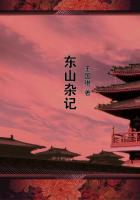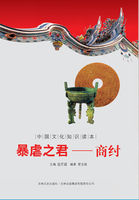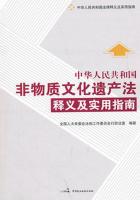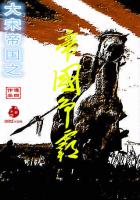"I've been kicking my heels in this town for a month," Peabody told him, "and I've talked to the people here, and to the Harvard expedition at Copan, and everybody tells me this fellow has found treasure." The archaeologist exclaimed with indignation: "What's gold," he snorted, "compared to the discovery of a lost race?""I applaud your point of view," Everett assured him. "I am to see the President tomorrow, and I will lay the matter before him. I'll ask him to give you a look in."To urge his treaty of extradition was the reason for the audience with the President, and with all the courtesy that a bad case demanded Mendoza protested against it. He pointed out that governments entered into treaties only when the ensuing benefits were mutual.
For Amapala in a treaty of extradition he saw no benefit. Amapala was not so far "advanced" as to produce defaulting bank presidents, get-rich-quick promoters, counterfeiters, and thieving cashiers. Her fugitives were revolutionists who had fought and lost, and every one was glad to have them go, and no one wanted them back.
"Or," suggested the President, "suppose I am turned out by a revolution, and I seek asylum in your country? My enemies desire my life. They would ask for my extradition--""If the offense were political," Everett corrected, "my government would surrender no one.""But my enemies would charge me with murder," explained the President. "Remember Castro. And by the terms of the treaty your government would be forced to surrender me. And I am shot against the wall." The President shrugged his shoulders. "That treaty would not be nice for me!""Consider the matter as a patriot," said the diplomat. "Is it good that the criminals of my country should make their home in yours? When you are so fortunate as to have no dishonest men of your own, why import ours? We don't seek the individual. We want to punish him only as a warning to others. And we want the money he takes with him. Often it is the savings of the very poor."The President frowned. It was apparent that both the subject and Everett bored him.
"I name no names," exclaimed Mendoza, "but to those who come here we owe the little railroads we possess. They develop our mines and our coffee plantations. In time they will make this country very modern, very rich. And some you call criminals we have learned to love. Their past does not concern us. We shut our ears. We do not spy. They have come to us as to a sanctuary, and so long as they claim the right of sanctuary, I will not violate it."As Everett emerged from the cool, dark halls of the palace into the glare of the plaza he was scowling; and he acknowledged the salute of the palace guard as though those gentlemen had offered him an insult.
Garland was waiting in front of a cafe and greeted him with a mocking grin.
"Congratulations," he shouted.
"I have still twenty-two days," said Everett .
The aristocracy of Camaguay invited the new minister to formal dinners of eighteen courses, and to picnics less formal. These latter Everett greatly enjoyed, because while Monica Ward was too young to attend the state dinners, she was exactly the proper age for the all-day excursions to the waterfalls, the coffee plantations, and the asphalt lakes. The native belles of Camaguay took no pleasure in riding farther afield than the military parade-ground.
Climbing a trail so steep that you viewed the sky between the ears of your pony, or where with both hands you forced a way through hanging vines and creepers, did not appeal. But to Monica, with the seat and balance of a cowboy, riding astride, with her leg straight and the ball of her foot just feeling the stirrup, these expeditions were the happiest moments in her exile. So were they to Everett; and that on the trail one could ride only in single file was a most poignant regret. In the column the place of honor was next to whoever rode at the head, but Everett relinquished this position in favor of Monica.
By this manoeuvre she always was in his sight, and he could call upon her to act as his guide and to explain what lay on either hand.
His delight and wonder in her grew daily. He found that her mind leaped instantly and with gratitude to whatever was most fair. Just out of reach of her pony's hoofs he pressed his own pony forward, and she pointed out to him what in the tropic abundance about them she found most beautiful. Sometimes it was the tumbling waters of a cataract; sometimes, high in the topmost branches of a ceiba-tree, a gorgeous orchid; sometimes a shaft of sunshine as rigid as a search-light, piercing the shadow of the jungle. At first she would turn in the saddle and call to him, but as each day they grew to know each other better she need only point with her whip-hand and he would answer, "Yes," and each knew the other understood.
As a body, the exiles resented Everett. They knew his purpose in regard to the treaty, and for them he always must be the enemy.
Even though as a man they might like him, they could not forget that his presence threatened their peace and safety. Chester Ward treated him with impeccable politeness; but, although his house was the show-place of Camaguay, he never invited the American minister to cross the threshold. On account of Monica, Everett regretted this and tried to keep the relations of her brother and himself outwardly pleasant. But Ward made it difficult. To no one was his manner effusive, and for Monica only he seemed to hold any real feeling. The two were alone in the world; he was her only relative, and to the orphan he had been father and mother.
When she was a child he had bought her toys and dolls; now, had the sisters permitted, he would have dressed her in imported frocks, and with jewels killed her loveliness. He seemed to understand how to spend his money as little as did the gossips of Camaguay understand from whence it came.
That Monica knew why her brother lived in Camaguay Everett was uncertain. She did not complain of living there, but she was not at rest, and constantly she was asking Everett of foreign lands.














